When planning a visit to the Auschwitz-Birkenau Memorial and Museum near Kraków, it’s important to consider the weather, which can greatly affect your experience. Kraków experiences a temperate climate with relatively cold winters and warm summers.
In the winter months, temperatures can drop significantly below freezing, with the possibility of snow and icy conditions.
As you prepare to visit the museum, which is largely outdoors and requires a fair amount of walking, appropriate clothing and footwear are essential to stay warm and comfortable.

During the summer, Kraków can be quite warm, with temperatures occasionally reaching above 30°C. While exploring Auschwitz, which is located about 70 kilometres east of Kraków, you’ll find little shade, and the sun can be quite intense.
To ensure your visit is as educational and reflective as possible, it’s advisable to wear light, breathable clothing, a hat, and apply sunscreen.
Regardless of the season, the weather around Auschwitz can be unpredictable, so it’s wise to check the forecast close to your visit and be prepared for sudden changes.
Auschwitz-Birkenau Museum and Memorial Overview
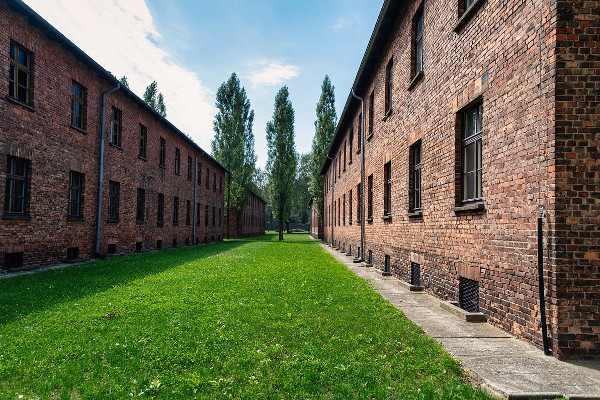
Situated in the suburbs of Oświęcim, now a symbol of the Holocaust, the Auschwitz-Birkenau Museum and Memorial preserves the history of the largest Nazi concentration and extermination camp.
As you plan your visit, understanding its historical context, visiting hours, and ticket information is essential.

Historical Significance
The Auschwitz-Birkenau Museum and Memorial serve as a stark reminder of the atrocities committed during World War II. Established by the Nazis in 1940, this site has since been dedicated to remembering the victims and educating visitors about the genocide that claimed over a million lives.
Visiting Hours
To visit the Auschwitz-Birkenau Museum and Memorial, check the following schedule:
- Summer (April – October): Open from 7:30 to 19:00
- Winter (November – March): Open from 7:30 to 15:00
When planning your tour, it’s recommended that you allow for several hours to fully engage with the extensive exhibits and memorial grounds.
Auschwitz Ticket Information
- Admission: While there is no fee to enter the Auschwitz-Birkenau Memorial, you still need to reserve your entry card in advance.
- Guided Tours: Opting for a guided tour provides a deeper understanding of the site’s history.
- Fees apply for guided tours.
- Group Visits: Groups are required to engage a guide-educator.
Weather and Climate in Krakow
In Krakow, you can experience a climate that is both continental and variable, which means weather conditions can change rapidly. This region’s temperatures range significantly throughout the year, giving you a diverse weather experience.
Annual Climate Patterns
Krakow’s climate is often quite distinct across the four seasons. Winters are usually cold with average temperatures around -1.6 °C, and they can plunge to about -15 °C or less on the coldest nights.
Contrastingly, summertime brings warmer conditions with day temperatures that can exceed 20 °C, coupled with increased humidity.
- Winter: Average January temperatures hover around -1.6 °C.
- Summer: Expect average temperatures well above 25 °C.
Seasonal Weather Guide
When planning a trip, understanding Krakow’s seasonal weather helps in packing and scheduling activities.
- Winter (December – February): Carrying warm clothing is necessary as it is the coldest season, with snowfall likely.
- Spring (March – May): The weather gradually warms up, but evenings can still be chilly. Read also Auschwitz March Tour
- Summer (June – August): You should prepare for warm weather, with some rain. Overcast days with temperatures around 15 °C at night are common.
- Autumn (September – November): It’s generally drier than summer, with pleasant temperatures that start to decline towards the end of the period.
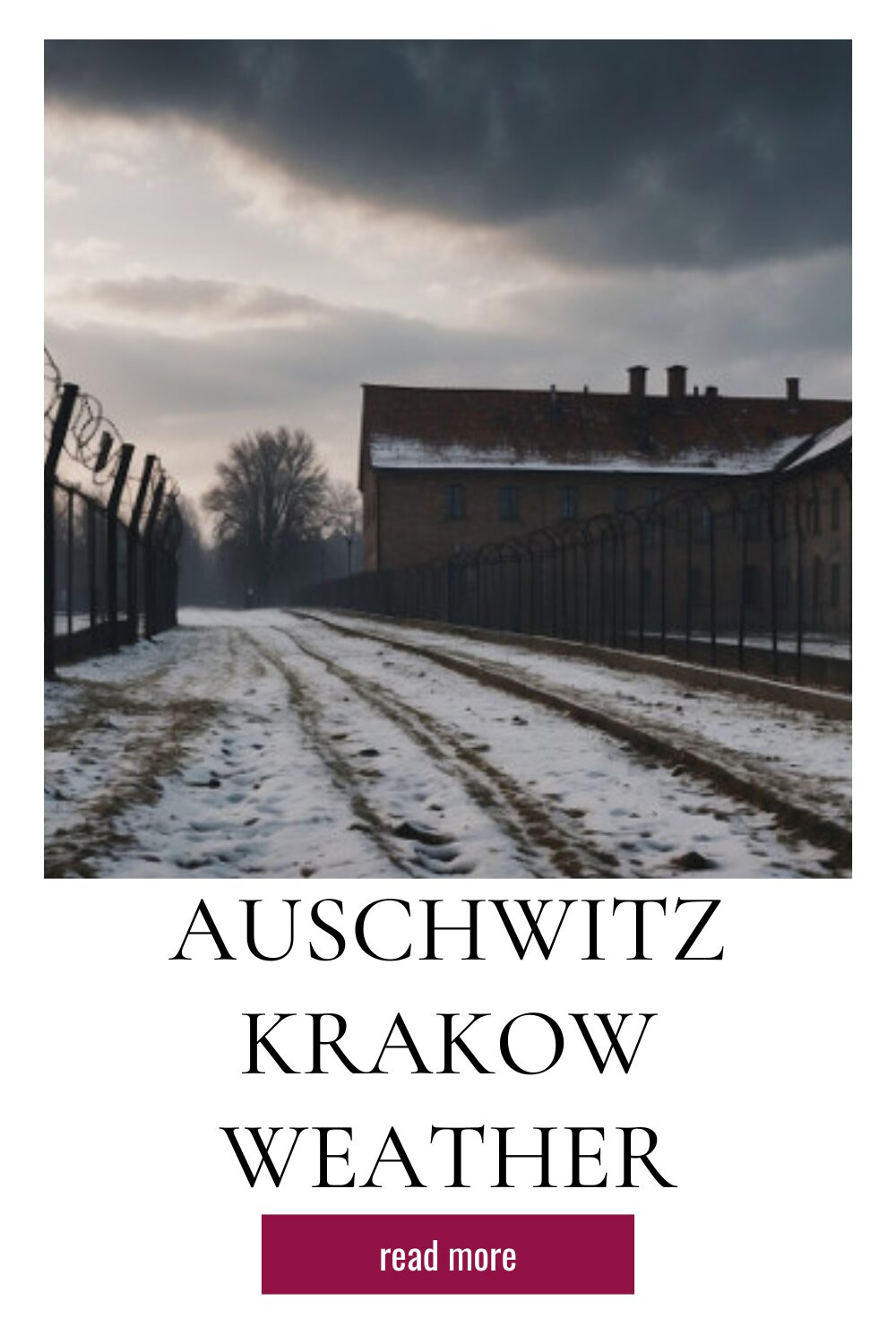
Daily Forecast Updates
For up-to-date forecasts, you can rely on daily updates which include temperature, wind speed, and humidity levels.
Travel Essentials for Krakow
Visiting Krakow requires preparation to ensure a comfortable and seamless experience. From packing the right items to understanding transport and choosing accommodation, the following insights will guide you through making the most of your stay in this historic Polish city.

What to Pack
- Clothing: Layered clothing to adapt to the variable weather. Have a mix of light and warm layers as temperatures can change.
- Essentials: A sturdy backpack for day trips, a refillable water bottle to stay hydrated, and sunscreen for protection against the sun, especially if there’s limited shade.
- Security: Consider luggage with locks or use lockers available at accommodations or transport stations to safeguard your belongings.
Transport and Accessibility
Getting around Krakow is relatively simple, and you should understand the basics of local transport:
- Public Transport: Reliable and affordable, with options like trams and buses.
- Taxis: Average taxi cost varies; ensure you use licensed taxis. Payment is often in cash, but some taxis now accept credit cards.
- Airport Transfer: Several options available, including train, bus, and taxi services. For convenience, organise your airport transfer ahead of time.
Accommodation Options
Krakow offers a variety of accommodation, from budget options to luxury hotels. Here are some specifics:
- Central Options: Ibis Krakow Stare Miasto and Ibis Budget Krakow Stare Miasto offer central locations with modern amenities.
- Booking: Advance booking is recommended, especially during peak tourist seasons.
- Access: Many accommodations are within walking distance to major sites or have easy access to public transport.
Sightseeing and Excursions
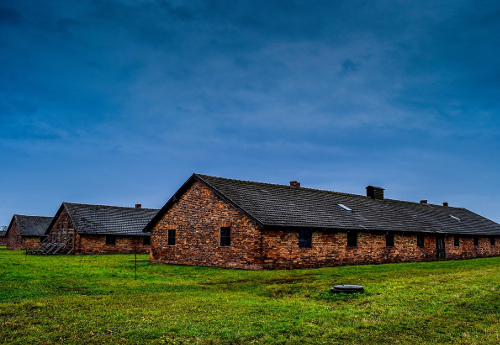
Exploring Krakow and its surroundings offers a wealth of history and culture. From architectural feats to deep underground adventures, your excursion options are abundant and cater to a variety of interests.
Krakow’s Historic Landmarks
In the heart of Krakow’s Old Town, you’ll find the iconic Market Square, a sprawling medieval plaza bustling with restaurants, stalls, and historic sites.
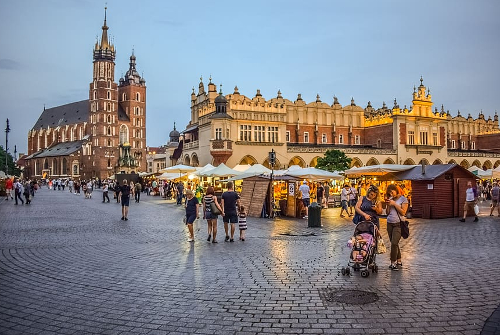
Take a moment to admire the marvellous St. Mary’s Basilica, famous for its wooden altarpiece and the hourly bugle call.
A short walk from the square is the Wawel Royal Castle, a symbol of Poland’s national identity and a testament to the country’s royal heritage. The castle complex includes an array of museums, royal chambers, and the Wawel Cathedral.
![]()
Day Trips and Tours
When you’re ready for a day trip, the Wieliczka Salt Mine is an outstanding choice, located just outside of Krakow. Here, you can explore a stunning underground world carved by miners over centuries.

The mine’s tourist route takes you through an array of statues, chapels, and lakes—all made of salt. Guided tours, often lasting about three hours, provide a unique experience about 135 metres below the earth’s surface. The multi-lingual guides offer fascinating insights, ensuring a memorable journey underground.
Events and Seasonal Activities
Throughout the year, Krakow hosts various events and activities that can enhance your visit.
If you’re in the city during New Year’s Eve (NYE) in Krakow, you’ll witness a vibrant celebration with fireworks and festivities throughout Market Square and other venues.

Seasonal activities include winter markets, summer open-air concerts, and traditional fairs. These events offer a glimpse into the local culture and are a fantastic way to engage with the community while enjoying your sightseeing adventure.
Practical Information
When planning a visit to Auschwitz from Kraków, you’ll want to consider local expenses, weather conditions, and safety measures to ensure a smooth experience.
Local Currency and Expenses
The local currency in Poland is the Polish złoty (PLN). It’s essential to have some cash on hand for small purchases, although many places accept card payments.
Start Planning Your Krakow Trip Now!
- Unsure where to stay in Krakow? Discover top-rated Old Town and Kazimierz hotels with Booking.com. Reserve now, pay later, and enjoy free cancellations.
- Book your airport transfer now and enjoy a hassle-free ride directly to your hotel. Driver will meet you at John Paul II International Airport Kraków–Balice.
- Take a Sobering Tour of Auschwitz. Arrange a visit to the Auschwitz-Birkenau Memorial and Museum to pay tribute and learn about this significant historical site.
⏰ Due to high demand, it’s strongly recommended to book your tickets, tour to Auschwitz and accomodation well in advance to secure your preferred dates and times! 🔖
- Explore the Fascinating Wieliczka Salt Mine! Book your guided tour today and discover this UNESCO World Heritage site just outside Krakow. These tours are popular year-round, so book early to avoid disappointment and ensure your spot.
- Looking for ideas? Check out our KrakowTOP.org recommended itineraries, including the famous Christmas Market, holiday events, and must-see Krakow attractions like Wawel Castle, Oskar Schindler’s Factory and St. Mary’s Basilica.
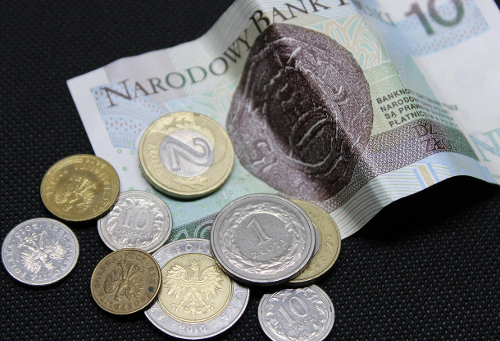
Here’s an indicative cost range for some common expenditures relevant to your trip:
- Restaurants: A meal in an inexpensive restaurant can cost around 20–40 PLN, while a three-course meal for two at a mid-range restaurant may be between 100–200 PLN.
- Tours: Auschwitz guided tours from Krakow prices vary but expect to pay roughly 90-150 PLN for a standard tour to Auschwitz, including transport and entry fees.
- Taxi Costs: Taxis can be a convenient way to get around Kraków. A typical fare starts at about 7 PLN, with an added 2–4 PLN per kilometre.
Weather Preparedness
Understanding the local weather patterns will help you pack appropriately. For an updated forecast, use reliable sources to check conditions, including temperature, wind, and precipitation.
- Temperature: The weather can be quite variable, so layering your clothes is a good idea. Summers are warm, while winters can be very cold.
- Wind: Average wind speeds can be around 7 m/s, although gusts might be stronger. Bring a wind-resistant jacket if visiting during cooler months.
- Precipitation: Rain can occur throughout the year. Always carry a waterproof jacket or umbrella for unexpected showers.
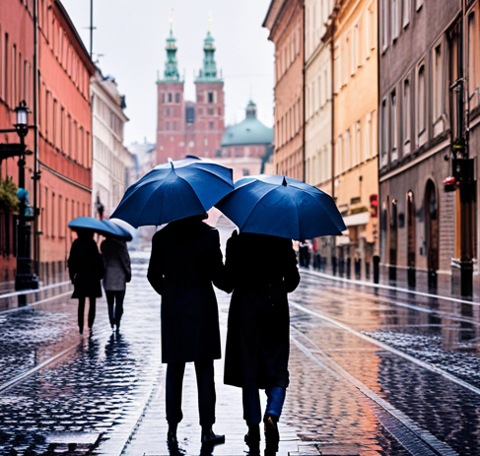
Safety Measures
While Auschwitz and Kraków are generally safe for tourists, it’s important to stay vigilant. Here are some safety tips:
- Keep your belongings close to avoid pickpocketing, especially in crowded areas.
- Follow the museum’s rules and regulations during your visit for a respectful and incident-free experience.
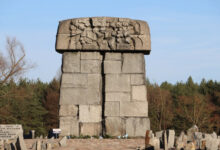


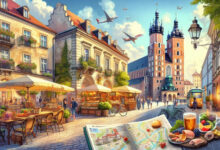

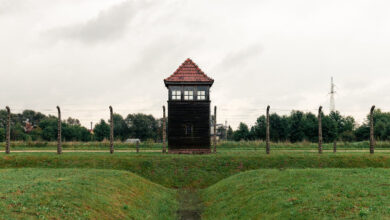



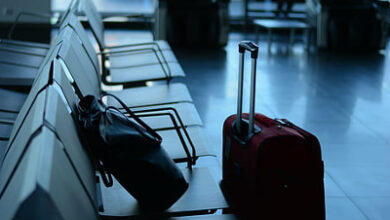
As a guide at the Auschwitz-Birkenau Memorial and Museum, I often get asked about the weather conditions visitors can expect during their tour. Your article has been a helpful resource for me to share with visitors. The detailed breakdowns of temperatures and precipitation levels provide a clear picture of what to expect throughout the year. Thank you for creating such an informative and user-friendly guide to help visitors prepare for their experience at the memorial.
I’m grateful for the insights your article has provided on the best times to visit Auschwitz and Krakow based on the weather. As someone who prefers to travel during the shoulder seasons, I found the information on spring and fall temperatures particularly useful. Your article has helped me make an informed decision on when to plan my trip to avoid the crowds while still enjoying favorable weather conditions.
As someone who frequently travels to Poland, I’ve found your article to be a valuable addition to my travel planning resources. The weather information for Auschwitz and Krakow is presented in a clear and concise manner, making it easy to understand and use. I particularly appreciate the inclusion of the wind speed data, as this can greatly impact the feel of the temperature. Thank you for providing such a comprehensive guide!
Your article has been a great help in planning my visit to Krakow and Auschwitz. I was unsure about the best time of year to go, but your detailed weather information has made it easier to decide. I appreciate the tips you’ve provided on what to wear and what to expect during each season. This will help me make the most of my trip and ensure I’m prepared for any weather conditions.
‘m a teacher planning a school trip to Auschwitz, and your article has been an invaluable resource. Understanding the weather conditions is crucial for ensuring the safety and comfort of my students during our visit. The information you’ve provided on the coldest and warmest months, as well as the average rainfall, will help me choose the most suitable time for our trip. Thank you for creating such an informative and user-friendly guide!
Your article has been a great help in planning my upcoming trip to Krakow and Auschwitz. I was particularly concerned about the weather, but your month-by-month breakdown has put my mind at ease. I now feel better prepared for my visit, knowing what to pack and what to expect in terms of temperatures and rainfall. Thank you for providing such a comprehensive resource!
I’m grateful for the in-depth weather information you’ve provided for Auschwitz and Krakow. As a history enthusiast, I believe it’s crucial to understand the conditions that prisoners faced during their time at the concentration camp. Your article has given me a better understanding of the harsh winters and relatively mild summers they endured. This context is invaluable for anyone seeking to comprehend the true impact of this dark chapter in history.
As someone planning a visit to Auschwitz from Krakow, I found your article extremely helpful. The monthly breakdown of average temperatures and precipitation has given me a clear idea of what to expect during my trip. I appreciate the level of detail you’ve provided, including the information on the coldest and warmest months. This will help me plan my itinerary accordingly. Thank you for this valuable resource!